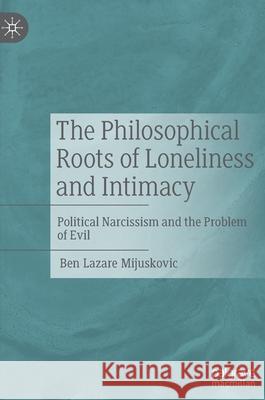The Philosophical Roots of Loneliness and Intimacy: Political Narcissism and the Problem of Evil » książka
topmenu
The Philosophical Roots of Loneliness and Intimacy: Political Narcissism and the Problem of Evil
ISBN-13: 9783030906016 / Angielski / Twarda / 2021 / 228 str.
The Philosophical Roots of Loneliness and Intimacy: Political Narcissism and the Problem of Evil
ISBN-13: 9783030906016 / Angielski / Twarda / 2021 / 228 str.
cena 385,52 zł
(netto: 367,16 VAT: 5%)
Najniższa cena z 30 dni: 382,84 zł
(netto: 367,16 VAT: 5%)
Najniższa cena z 30 dni: 382,84 zł
Termin realizacji zamówienia:
ok. 20 dni roboczych.
ok. 20 dni roboczych.
Darmowa dostawa!
Kategorie BISAC:
Wydawca:
Springer Nature Switzerland AG
Język:
Angielski
ISBN-13:
9783030906016
Rok wydania:
2021
Ilość stron:
228
Waga:
0.45 kg
Wymiary:
21.01 x 14.81 x 1.75
Oprawa:
Twarda
Wolumenów:
01
Dodatkowe informacje:
Wydanie ilustrowane











